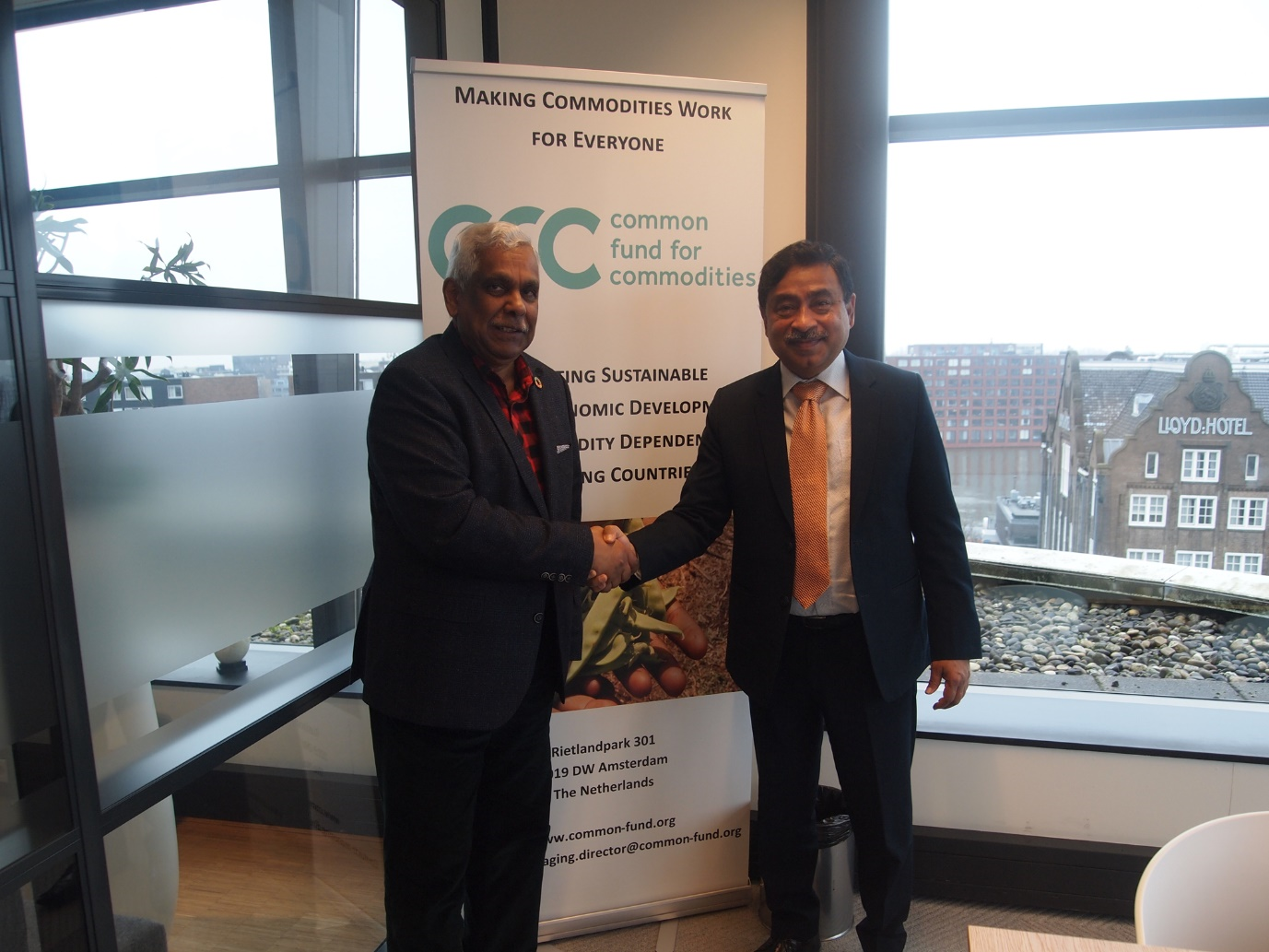Harnessing the potential of natural Fibers as a sustainable solution
Mr. Dilip Tambyrajah, the founding member and Secretary General of International Natural Fiber Organization (INFO) joined the Managing Director of the Common Fund for Commodities (CFC), Ambassador Sheikh Mohammed Belal, at the Secretariat on 15 February 2024 to discuss the labyrinth of challenges and opportunities inherent in the realm of natural fibers.
The growing concern over plastic pollution has led to a renewed interest in natural fibres as a sustainable alternative for various industries, including fashion and textiles. Natural fibers, like jute, cotton, and wool, have been proposed as alternatives to synthetic fibers, such as polyester and nylon, which are major contributors to plastic pollution. To ensure a sustainable environmentally friendly solution, it is crucial to address the challenges associated with natural fibers and to promote a more circular economy for concerned industries. This includes sustainable design and production, caretaking measures to control microplastic emissions during use, and improved disposal and end-of-life processing. During the visit of Mr. Tambyrajah he discussed the biggest challenges that plagues the development of natural fibre commodities.
During their discussion, Mr. Tambyrajah was informed about the CFC's projects with natural fibers, their impact on the ground and learned more about CFC’s role in global sustainability. They discussed how natural fibers can help with environmental issues, highlighting the challenges holding back the fiber industry and explored ways that CFC and INFO could work together to overcome them. Their conversation reflected a shared vision for a greener future, emphasizing how important natural fibers can be in making it happen.
Innovation plays a pivotal role in enhancing any commodity sector, adding value and fostering economies of scale for those directly and indirectly reliant on it for their livelihoods. In their recent discussion, Ambassador Belal underscored the significance of innovation by highlighting a groundbreaking innovation by Dr. Mubarak Ahmed Khan, the "Shonali bag." This ingenious creation offers a biodegradable, pollution-free alternative to plastic bags, crafted from jute cellulose.
The conversation delved into the profound impact of such innovations, particularly in combatting the scourge of plastic pollution. Ambassador Belal and Mr. Tambyrajah emphasized the critical importance of nurturing and promoting such innovative solutions. They cautioned that without adequate encouragement, exposure, and investment, these groundbreaking ideas risk fading into obscurity, much like countless other innovations that could have mitigated our current climate crisis had they received the recognition they deserved.
Their exchange served as a poignant reminder of the transformative power of innovation in commodity sectorial development and the imperative of harnessing it to address pressing environmental challenges. By championing innovative solutions like the "Shonali bag," we can pave the way towards a more sustainable future, sparing future generations the consequences of unchecked crises such as plastic pollution.

